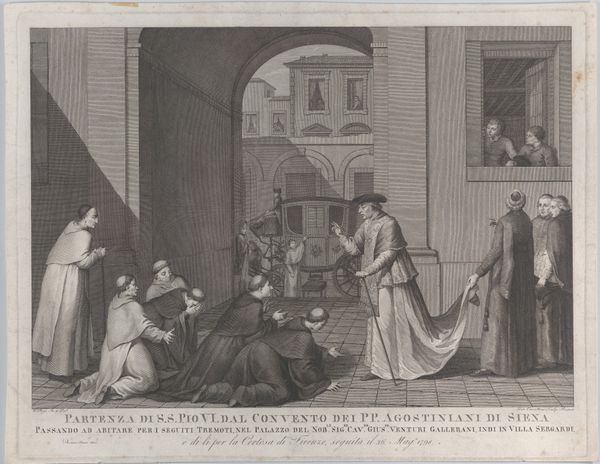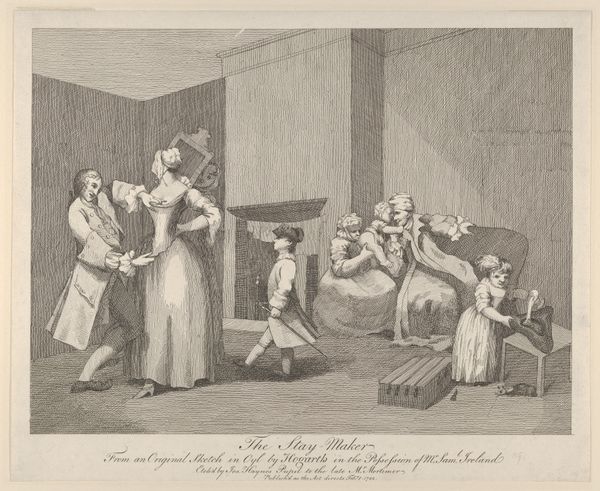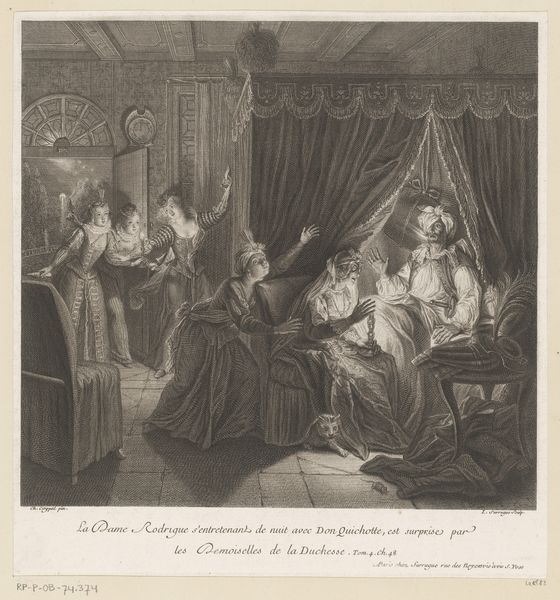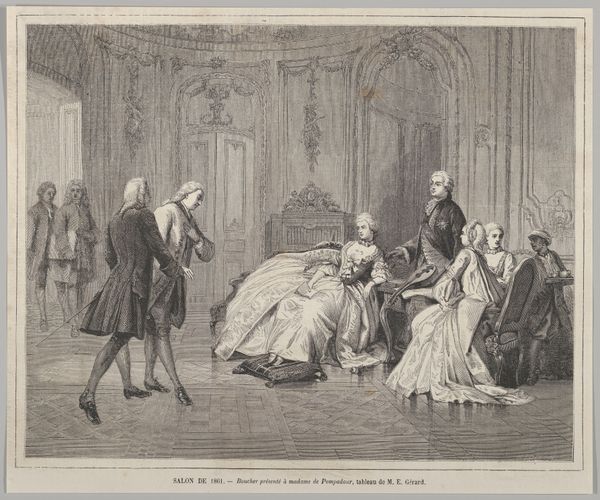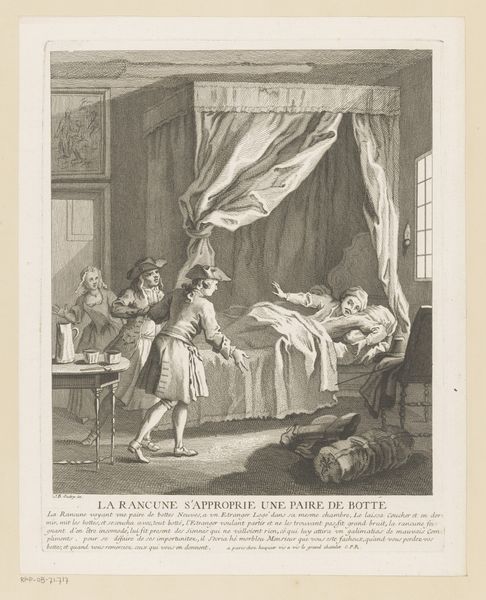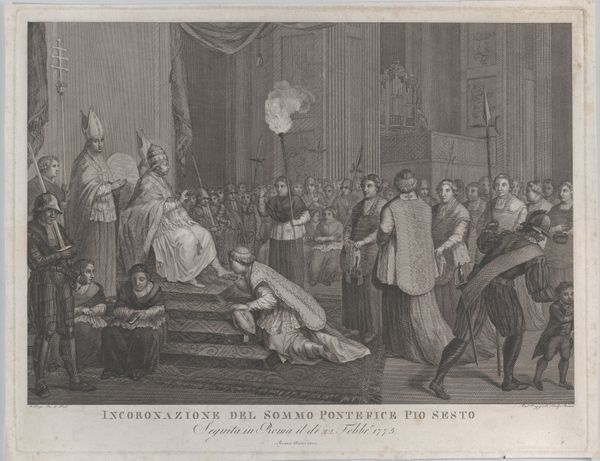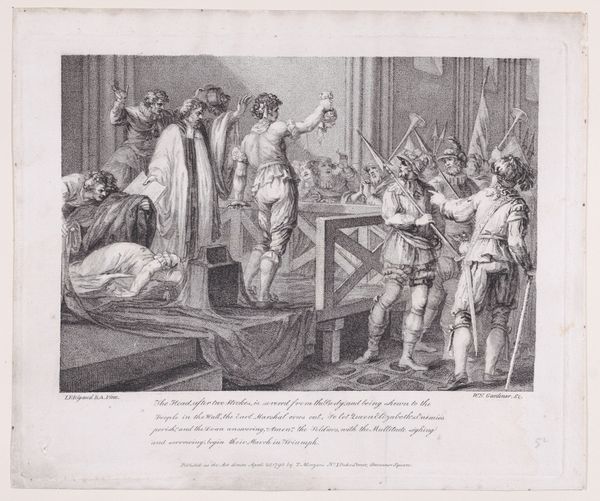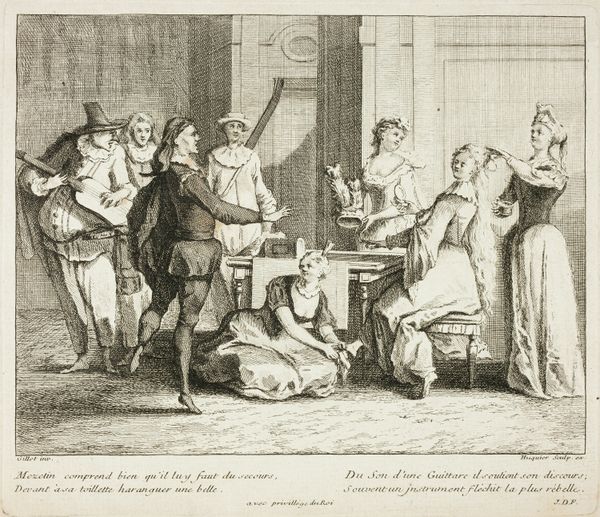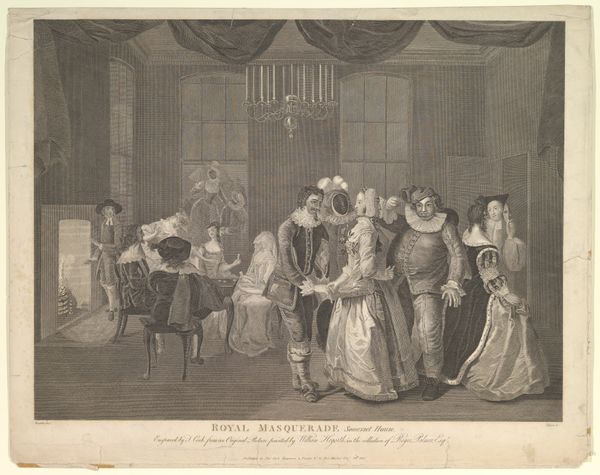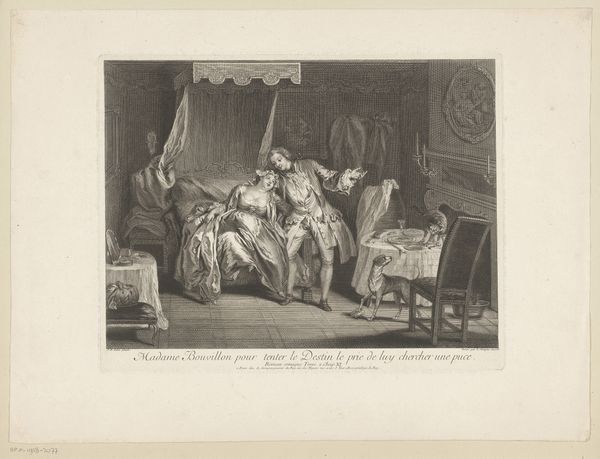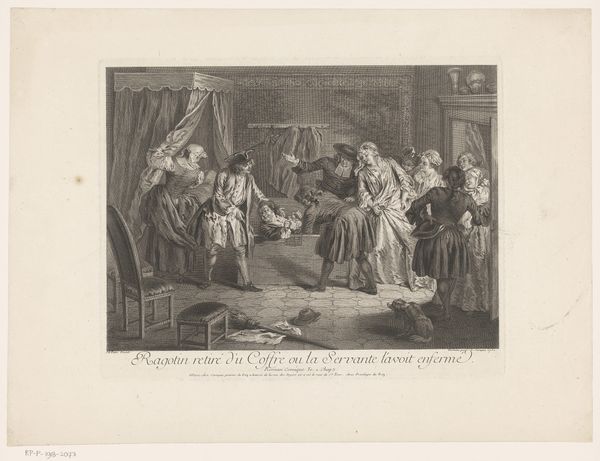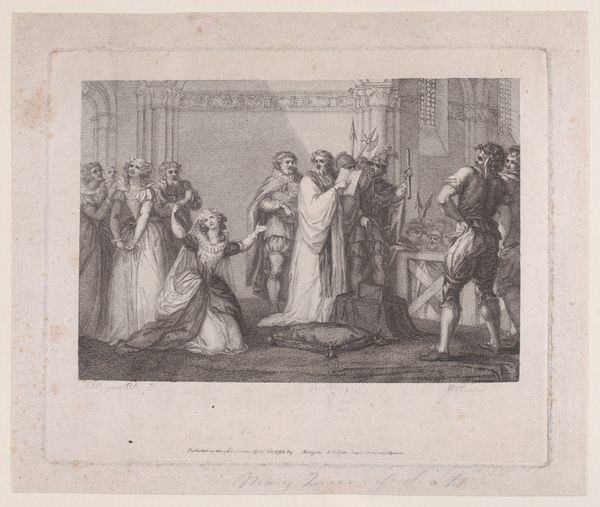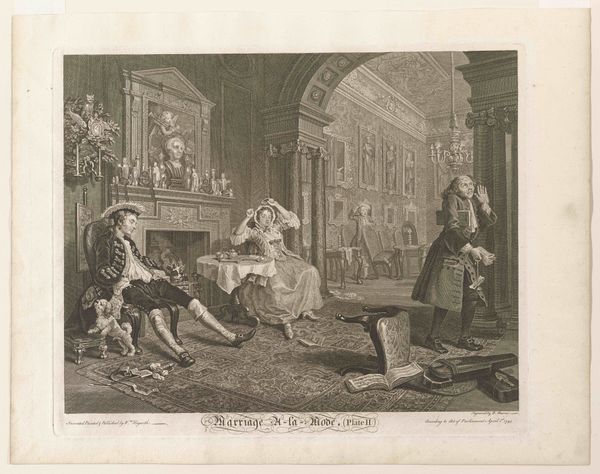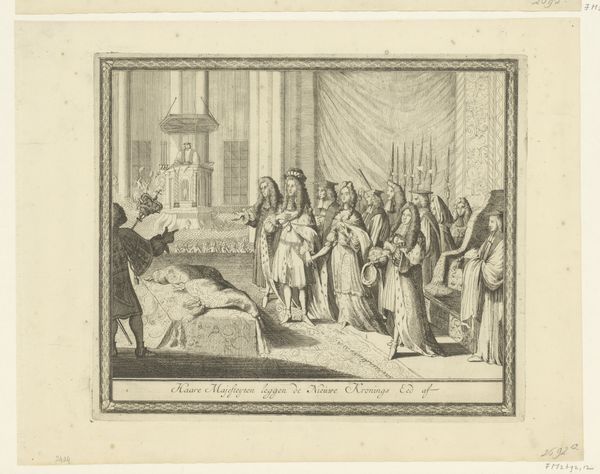
print, engraving
#
neoclacissism
#
aged paper
#
vintage
#
narrative-art
# print
#
19th century
#
history-painting
#
engraving
Dimensions: height 476 mm, width 566 mm
Copyright: Rijks Museum: Open Domain
This print by Jean Baptiste Vérité depicts Louis XVI being separated from his family. It was made using a technique called engraving, which involves cutting lines into a metal plate and then using ink to transfer the image onto paper. The linear quality, the stark contrasts of light and shadow, these all speak to the labor-intensive process. Each line meticulously carved, mirroring the revolutionary era's fervor and its separation of the classes. Prints like this were crucial; they circulated widely, shaping public opinion and disseminating the ideals of the revolution. In a world before mass media, this was a potent tool. Notice how the artist captured the scene's emotional weight. The somber figures and stark setting serve as a visual testament to a society undergoing dramatic change. It reflects the shift in power, capturing a pivotal moment in history for mass consumption. The artwork's true power lies not just in its subject but in its making and distribution, blurring the lines between art, craft, and propaganda.
Comments
No comments
Be the first to comment and join the conversation on the ultimate creative platform.
